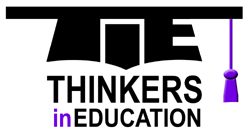From REDOX Reactions to Fuel Cells
Perhaps, STEM G&T events offering excitement and real-life experiences can help to nurture our future scientists and pioneering thinkers.
For example, our Target:Mars 3+ day events for Key Stages 3 & 4 require pupils to explore Redox reactions. Pupils use microchemistry, turning a typical teacher demonstration into an effective student experiment/investigation.
Pupils analyse all parts of the redox experiment, applying existing knowledge and using problem solving skills to explain the reaction. They observe the reaction between magnesium ribbon and HCl (a great way to introduce or revisit the reactivity series) that produces the hydrogen gas that is passed over heated Copper Oxide. They can see the results within 3 minutes! If pupils work in pairs, within teams, it ensures results can be compared and reliability judged.
Students will see the resulting copper and the water vapour formed in the reaction. These substances can be easily tested. They can also try the ‘pop’ test with the excess gas. We use this wonderful system to great effect in every Target Mars event we deliver and both pupils and teachers are always impressed.
This is followed by an investigation into the electrolysis of brine. It could be performed with regular labware, but again, we favour the Micro Science equipment, which allows students to measure the volumes of gas formed at each straw electrode. They model ion migration, using animations in PowerPoint resources and then consider the electrolysis of water.
This progresses to the investigation of fuel cell technology, using reversible PEM fuel cells in a model cars. We use one type that vividly demonstrates the electrolysis of water and a more futuristic type that has its own hydrogen chamber to run off. Both bring typcially ‘dull’ electrolysis experiments to the forefront of current scientific research.
By the end of the challenge, pupils are able to explain physical and conceptual models – with a focus on the applications for industrial processes and new technologies.
There has never been a better time to try this approach and to evaluate the effect it has on teaching and learning. There is still a major focus on STEM (Science, Technology, Engineering and Mathematics) subjects and whilst the name keeps changing(!) a focus on essential functional skills.
However, it is the impact that these events have on the pupils that cannot fail to convince us that it is a positive way forward.
‘This was a once in a lifetime experience, which I will never forget. It was useful, fun and unique. I am proud of myself…it has definitely built my confidence, increased my knowledge and provided more interest in science. It has also helped me with my plans for my career and future’. N. Bibi, Year 10, Walshaw High School, Burnley.
